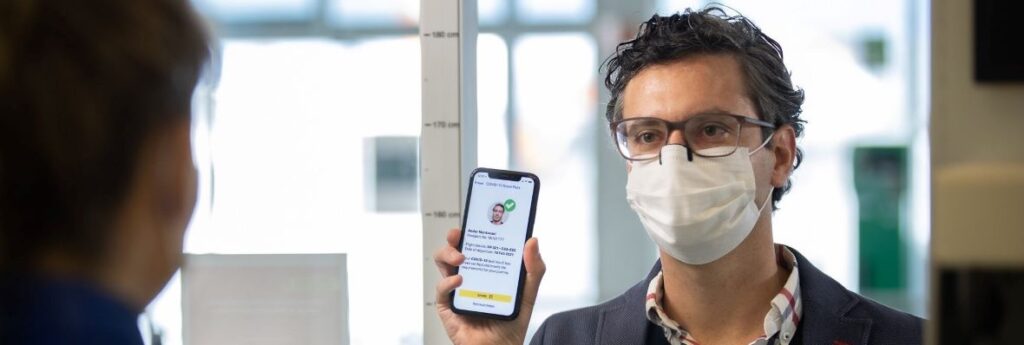Travellers, along with air travel and rail employees, must be fully vaccinated against COVID-19 by Oct. 29, according to new measures announced by the prime minister yesterday. Cruise companies will also be asked to implement mandatory vaccines for employees and travellers in time for the 2022 season.
The mandatory vaccine policy for the travel sector coincides with similar measures for public servants, who must attest they are fully vaccinated against COVID-19 by the same date or be put on unpaid administrative leave.
The government says it is working with employers of airport businesses, airline, and rail companies to develop their own mandatory vaccine policies by the end of the month.
Meanwhile, anyone wishing to hop aboard a plane or train must have received a second dose of a Health Canada-approved vaccine at least 14 days before their travels. For travellers, there will be a short transition period to allow the unvaccinated to show a negative molecular COVID-19 test instead, though the grace period will last only until Nov. 30.
Senior government officials say that anyone planning a trip in the coming weeks needs to book their vaccine appointment now.
“If you’ve done the right thing and gotten vaccinated, you deserve the freedom to be safe from COVID-19, to have your kids be safe from COVID, to get back to the things you love,” Prime Minister Justin Trudeau said at a news conference Wednesday.
Approximately 82% of eligible Canadians have received a double dose of Health Canada-approved vaccines, Deputy Prime Minister Chrystia Freeland said at the same briefing.
“This is about the government taking action on behalf of that majority who spoke in the election, to be sure that a minority of people cannot sabotage Canada’s economic recovery and cannot allow the fourth wave or other variants to cause real problems for us,” Freeland said.
There will be accommodations made for people who are unable to receive a vaccine on grounds protected under the Canadian Human Rights Act, which includes religious and health reasons for not having a full slate of vaccines, though Trudeau said exemptions will be difficult and onerous to obtain, and simply having a personal conviction that vaccines are “bad” will not be sufficient.
The announcement Wednesday expands on a promise Trudeau made in August, just before calling the election, that his Liberal government would make vaccinations mandatory for federal employees.
Since then, Treasury Board officials have been working out the details – including the consequences for workers who refuse to get vaccinated – in consultation with the affected unions.
Trudeau’s government is also working with provinces on producing a federal proof of vaccination certificate, however federal officials say a national vaccine passport that could be used for international travel can’t be created unilaterally by Ottawa because all health data in Canada is compiled and stored by the provinces and territories.
Airline response
The National Airlines Council of Canada, which represents Canada’s largest air carriers (Air Canada, Air Transat, Jazz Aviation LP and WestJet) supported the measures now implemented when announced in August, but says it is now “urgent” to begins discussions with officials on implementation details and proposed regulations, including the responsibilities of government agencies.
“Timelines are very tight to implement the travel rules,” NACC president and CEO Mike McNaney warns, adding, “It is imperative that the federal government quickly develop a standardized and digital proof of vaccination for air travel.”
McNaney says it is also time for the government to amend measures in place before the vaccine mandate, such as mandatory PCR testing pre-departure for fully vaccinated international travellers coming to Canada.
“The current blanket federal travel advisories also need to be reconsidered, given that the new rules will require air travellers leaving Canada to also be fully vaccinated,” he says.

